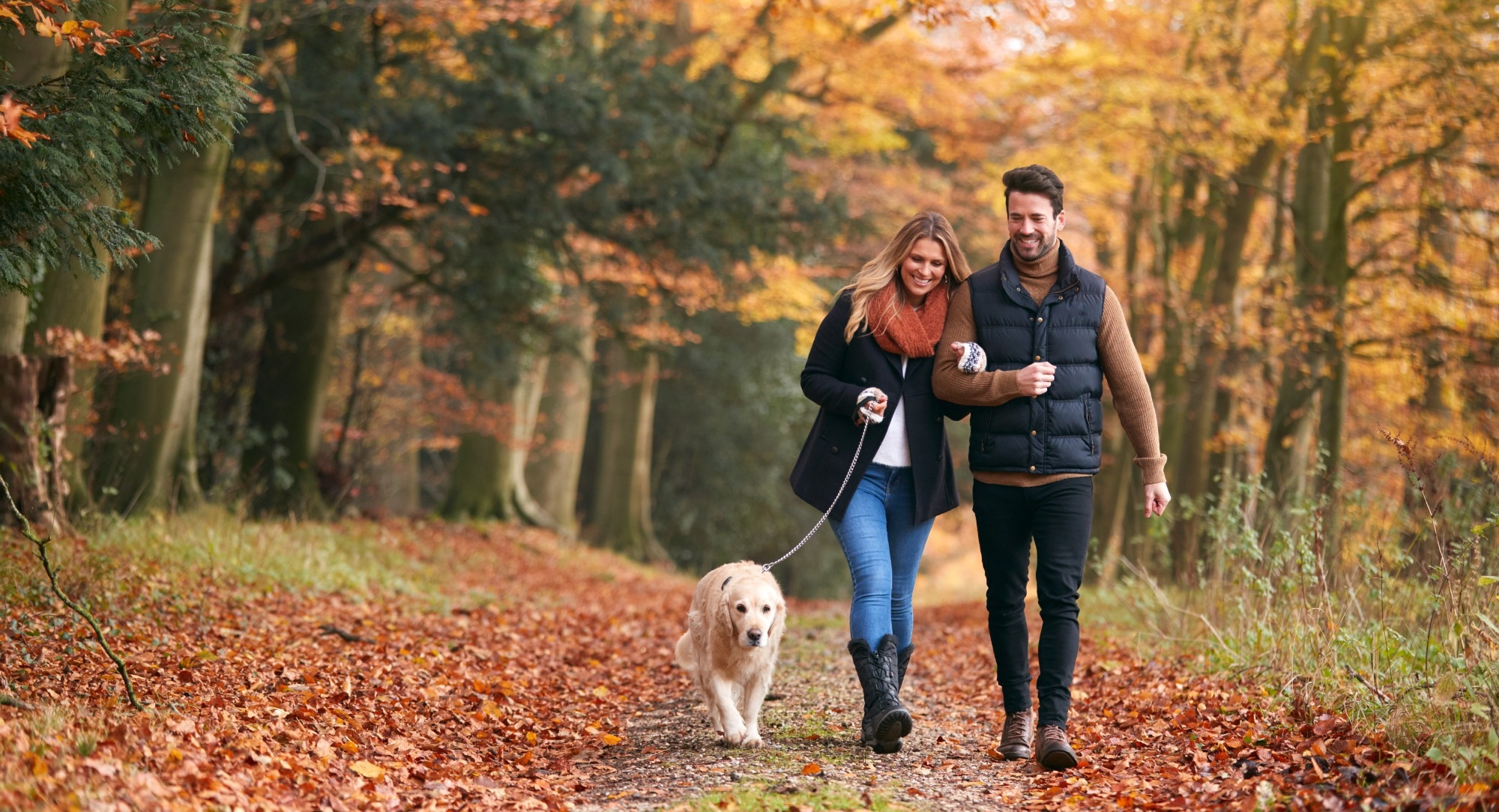Specifically, they verified whether the attachment between the dog owner (DO) and the dog influenced their PA levels, as measured by accelerometry.
In addition, the researchers examined how DO's socio-demographic status, lifestyle, and health, as assessed on the Subjective Health Perception Scale (SHPS), influenced their dog's health.
 Study: Walk or be walked by the dog? The attachment role. Image Credit: Monkey Business Images/Shutterstock.com
Study: Walk or be walked by the dog? The attachment role. Image Credit: Monkey Business Images/Shutterstock.com

 *Important notice: Research Square publishes preliminary scientific reports that are not peer-reviewed and, therefore, should not be regarded as conclusive, guide clinical practice/health-related behavior, or treated as established information.
*Important notice: Research Square publishes preliminary scientific reports that are not peer-reviewed and, therefore, should not be regarded as conclusive, guide clinical practice/health-related behavior, or treated as established information.
Background
Engaging in PA, including pet walking, are some of the most effective strategies for a healthy lifestyle. Adopting such habits is as effective in promoting health as abstaining from smoking, taking restful sleep, and eating a balanced diet, as these could help prevent the development of chronic non-communicable diseases, thereby reducing the burden on healthcare systems.
Under the 'One Health' approach, the human-animal bond has received profound scientific attention, given its positive influence on the psychological and physical health of DOs and their pets. It has been proposed as a PA strategy as well.
With the advent of accelerometers to quantify PA, it has become feasible to fetch objective and unbiased data on DO and their dog's activities to match researcher observations. This method fares better against traditional pet activity monitoring because in 'daily life,' dogs' activities vary substantially across pet households.
Martins et al. also showed the level of attachment to a pet as a variable that influenced the health of a DO.
Even previously, studies had recognized regular dog walking beneficial for the human-animal bond and the pet's health. In several aspects, this human-animal relationship resembles human social support that facilitates the initiation of PA.
About the study
In the present study, researchers initially approached 148 adult Portuguese DOs while walking in public places/ parks or through social networks who agreed to voluntarily and anonymously participate. Eventually, only 38 participants proceeded to complete accelerometer procedures/interventions.
The researchers evaluated each DOs, age, sex, number of household members, body mass index (BMI), and SHPS. They recorded how they rated the importance of their dog's health. Likewise, they gathered data on their dog's age, gender, time of adoption, and care practices, e.g., vaccination.
Most importantly, they objectively measured PA levels for the DO and their dogs in their home environments for 24 hours using ActiGraphs.
They recorded each DOs PA, including the duration and frequency of walks, and responses ranged between 'no walk' to more than 30 minutes of walk time. A Body Condition Score (BCS) indicates whether a dog is thin or obese.
A 30-item FANTASTIC questionnaire helped the researchers evaluate each DO's lifestyle. Likewise, the Lexington Attachment to Pets Scale (LAPS) scores helped them capture the affective aspect of the dog's supportive role in the DO's life.
Results
The final sample for this study comprised 38 Portuguese adults with 43 ± 16.57 years of age and 38 dogs with 13.2%, 65.8%, and 21.1% two or less than two, between three and eight, and nine or more years old, respectively.
The study revealed that most DO have a normal BMI, good health perception, and a good lifestyle. Their educational level and occupation likely facilitated the adoption of healthy behaviors for themselves and caring for their dog's health, including dogs' caloric expenditure and PA.
DOs showing positive behaviors, e.g., less smoking, and awareness towards their health, tended to prioritize their dog's health, highlighting the interconnectedness of humans and dog's well-being. Accordingly, their dogs had lower BMI.
Additionally, the authors found that DOs with larger households engaged more in outdoor dog walking, albeit of shorter duration. The presence of children, elderly family members, or more family members limited them from taking longer walks.
The results also indicated that petting larger dog breeds led to higher levels of Moderate Vigorous Physical Activity (MPVA) by the DO, given the dog was not aggressive.
Based on the FANTASTICO scale results, DOs with friends and family did not share their problems with their pet dogs, while those facing difficulty in doing so with peers and family used their pet as a confidant.
Conclusions
Taken together, the study findings reinforced that the habits and lifestyle choices of DO, including their PA levels, played a significant role in determining their dogs' health and their own overall health. Thus, DOs recognizing PA-related health benefits extended them to their dogs.
The World Health Organization (WHO) recommends 150 to 300 minutes per week of MVPA for health benefits. A high percentage of DO in this study complied with these recommendations.
Furthermore, this study revealed that a higher emotional attachment of the DO with the dog drove increased PA levels. Thus, women DOs exhibiting greater emotional closeness with their dogs benefitted more than their male counterparts.
The positive association between dog ownership and health could reduce public healthcare costs, especially in countries like Portugal, where ~38% of households own dogs.

 *Important notice: Research Square publishes preliminary scientific reports that are not peer-reviewed and, therefore, should not be regarded as conclusive, guide clinical practice/health-related behavior, or treated as established information.
*Important notice: Research Square publishes preliminary scientific reports that are not peer-reviewed and, therefore, should not be regarded as conclusive, guide clinical practice/health-related behavior, or treated as established information.